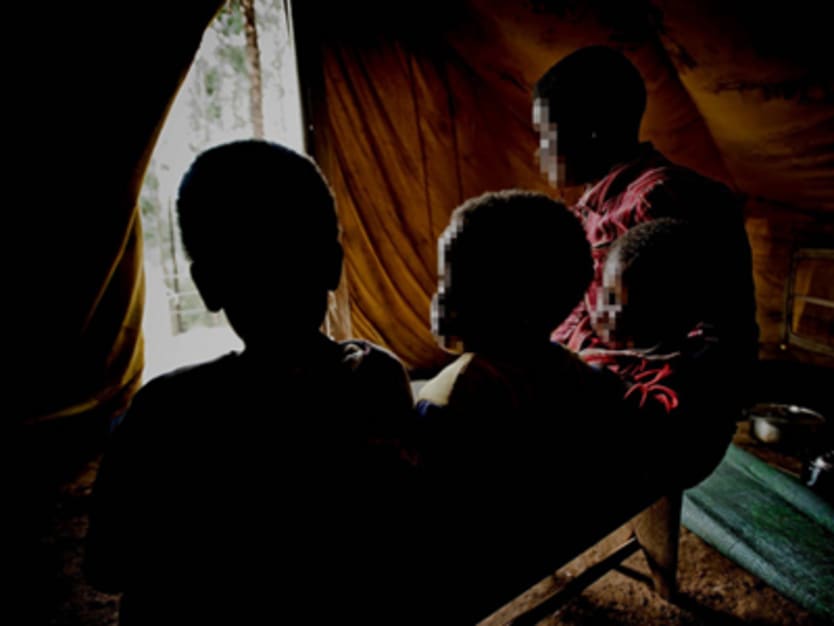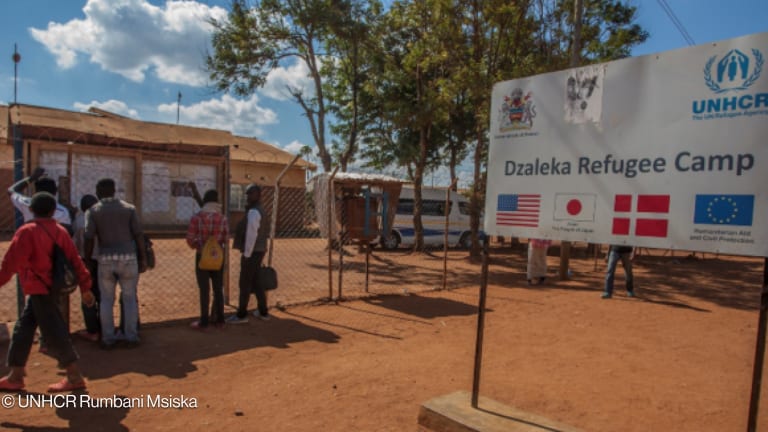
There are more refugees and other forcibly displaced people today than at any time since 1994.
In 2012 — the most recent year for which data is available — an average of 23,000 people were forced to flee armed conflict and persecution every day. Many were victims of rape and other sexual violence.
At UNHCR we believe that sexual violence constitutes a violation of human rights tantamount to persecution. As such, it should be recognized as a valid reason for flight and for receiving refugee protection.
Indeed since 2008, the U.N. Security Council has recognized rape as a tactic of war and states that preventing and responding to such acts of sexual violence can significantly contribute to the maintenance of international peace and security.
Sexual violence is a serious human rights violation, a type of torture, and a crime. The trauma experienced by survivors is not just physical, but emotional and psychological.
And sexual violence takes many forms. For refugee women and girls the risks include rape, forced prostitution, trafficking or demands for sexual favours in exchange for assistance, also called “sextortion.” Refugee children — boys included — can be at even greater risk of sexual exploitation and other forms of abuse. Men are also targeted.
Prevalence of sexual violence
At UNHCR we are sometimes asked to gauge the prevalence of sexual violence.
In reality the extent of the problem may never be known. Stigma and fear of dishonor in many cultures mean that it remains underreported. Nonetheless, we do know that it is sufficiently widespread to warrant Maj. Gen. Patrick Cammaert, a former commander of U.N. peacekeeping forces in eastern Congo, to have warned that in situations of conflict it may be more dangerous to be a woman than a soldier. A chilling 1996 report by Rene Degni-Segui, a former special rapporteur for the U.N. Commission on Human Rights, estimated that in just one hundred days during 1994, between 250,000 to 500,000 women and girls had been raped in Rwanda.
Such a prevalence of rape and sexual violence can trigger a vicious cycle of displacement, exacerbating an existing crisis.
People flee in fear of sexual violence, or because they have already fallen victim to this crime. Once displaced, they may be separated from their families, find themselves without community support structures, and become vulnerable to discrimination and economic and social inequalities. All of this makes these individuals more vulnerable to sexual violence.
Huge challenge
Clearly, policy makers and aid agencies face a huge challenge.
UNHCR is one organization working to address the problem, but better understanding and more robust support is needed internationally. This is important not only to prevent sexual violence, but also to ensure that when such violence happens, women and girls, as well as men and boys, have access to proper help including medical care, psychosocial support and safe refuge. A holistic approach encompassing prevention, protection and prosecution is necessary to address the consequences of such crimes.
Ending impunity for conflict-related sexual violence is critically important.
States must comply with their international obligations to ensure that perpetrators are prosecuted. At present, this is not happening. We know that of some 14,200 rape cases registered between 2005 and 2007 in the Democratic Republic of Congo province of South Kivu, just two per cent of perpetrators have been called to account.
Empowering those at risk with access to education and the right to work can also ensure that the forcibly displaced are able to meet their own basic needs and do not therefore fall victim to “sextortion” and forced marriage. Better layouts for refugee camps, good access to firewood so that women do not need to venture far from their homes, and the planned inclusion of safe spaces are all simple measures that can make a tremendous difference.
Those forced to flee their homes because of sexual violence have a right to sanctuary, and to have their claim for refugee status heard and accepted.
The scourge of rape in conflict and war is finally being recognized. Eradicating it may be the greatest challenge we face.
Volker Turk is speaking today at the Trust Women Conference in London. Organized by the Thomson Reuters Foundation and the International New York Times, Trust Women is the conference dedicated to putting the rule of law behind women’s rights.
Join the Devex community and gain access to more in-depth analysis, breaking news and business advice — and a host of other services — on international development, humanitarian aid and global health.


